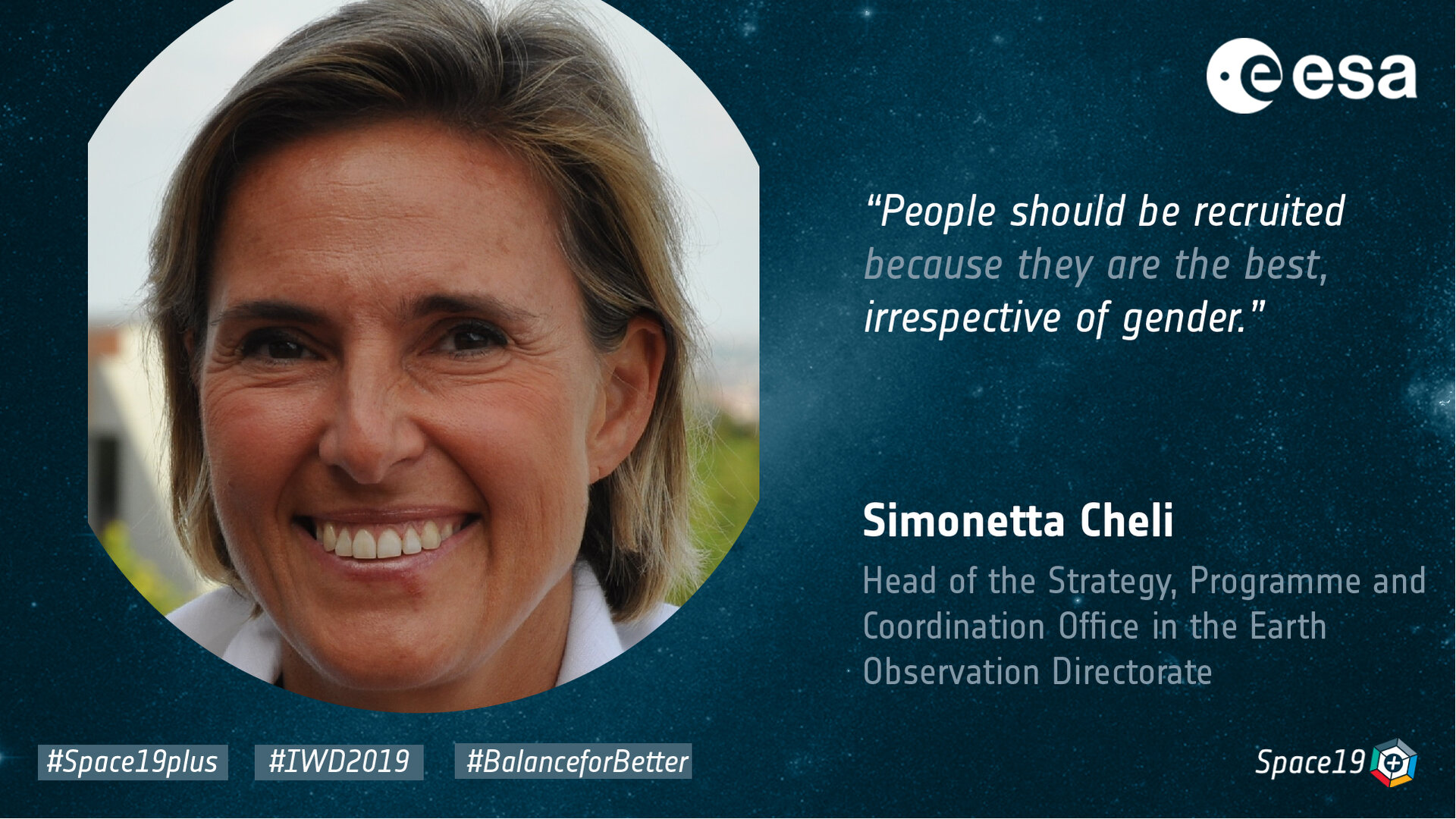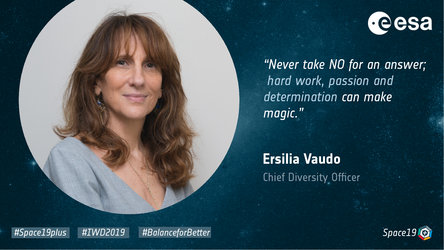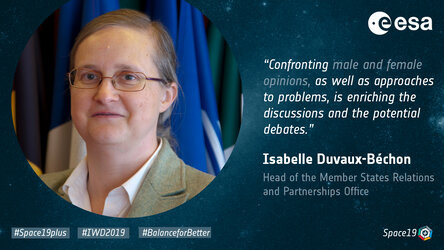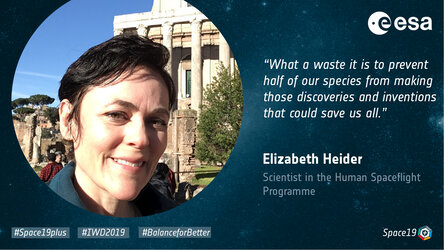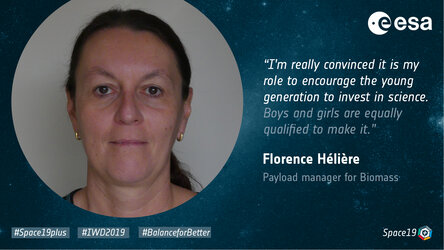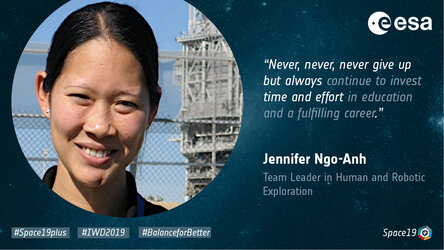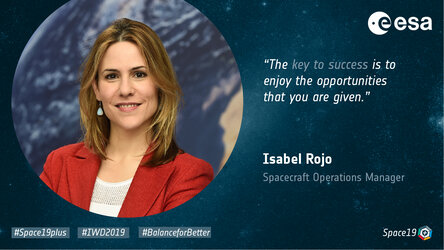Simonetta Cheli, Head of Strategy, Programme and Coordination Office, ESA Earth Observation
Please give a brief description of your duties at ESA.
I have worked at ESA for 30 years, both at the Headquarters in Paris and at ESRIN, the ESA establishment in Italy. I am head of the Strategy, Programme and Coordination Office in the Directorate of Earth Observation. I coordinate International Relations with international partners in the field of environment and climate, and relations with ESA Member States and the European Union, organise the Programme Board responsible for Earth Observation, manage communication activities and launch communication campaigns. I represent ESA internationally while organising and preparing the daily work of the director (i.e. the management meetings, the yearly objectives, the internal communication of Council and of the directors committee).
What inspired you to pursue a career in science and engineering and what motivated you to join ESA specifically?
I was fascinated by topics related to telecommunications satellites and international law and cooperation so I wrote a thesis on the Space Treaties at the United Nations. After working at the European Commission, I joined ESA in the 1988 somehow by chance and, from the start, I enjoyed my work in international relations and never left the Agency.
Did you encounter gender barriers on your way to becoming a scientist / engineer?
I am not a scientist but have worked with scientists and engineers all my life. My background is international law, international relations and a master’s in diplomatic and strategic studies. I found the work with scientists and engineers very enriching and stimulating and have learned a lot from the cooperation in the tactical domain. I always had great support from my colleagues.
What progress have you seen in addressing the gender imbalance in your profession through equal-opportunity measures in recent years?
ESA has recently set up a diversity policy, including a gender policy. This is in line with trends in major European and multinational companies as well as international organisations. While this is a positive trend, the process is slow and there is still a need for more action as well as concrete measures (e.g. more women on technical evaluation boards, on interview boards, representing the Agency). Also, we need to ensure that the recruitment procedures are not penalising women. People should be recruited because they are the best, irrespective of gender.
What are, in your view, three measures that could make a difference in supporting a work-life balance and at the same time equal career opportunities.
I think that measures such as childcare facilities on-site, telework possibilities, and unpaid leave for personal reasons can help improve the work–life balance and equal career opportunities.
What advice would you give to a girl or young woman who is considering a career in science and engineering?
I would suggest studying and investing your energy in achieving the best possible results in academic fields of her interest. She should also study languages and be mobile enough to do internships in the field of interest. It is important to assess your own professional vocation and motivation to work in a specific field before taking a final career track.


